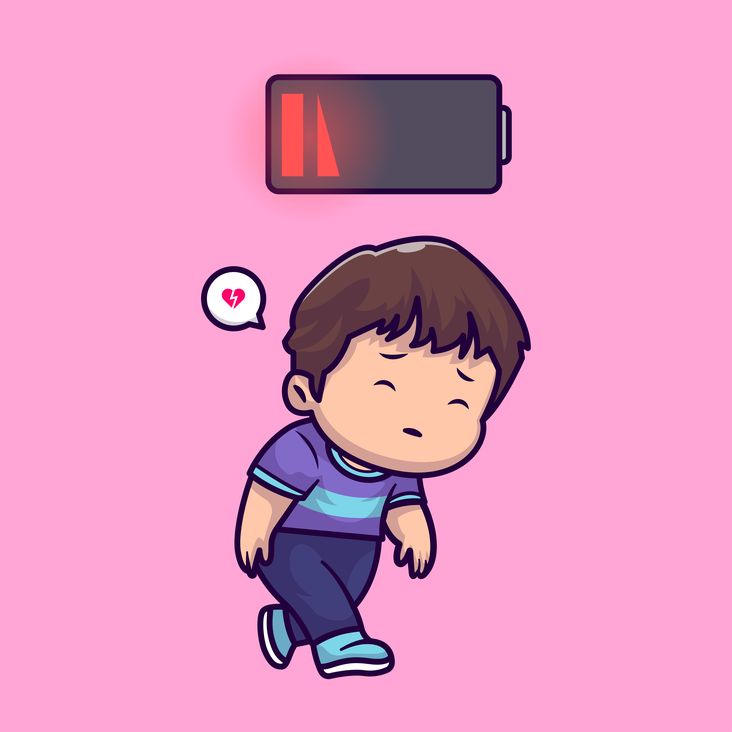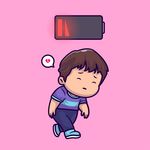Understanding Burnout: Interview With Dr. Veneta Slavchova
Nov 10, 2023 by Vreny Blanco · 8 min read · Interviews, Mental Health

In today’s fast-paced and demanding work environment, burnout and mental health issues are on the rise. Understanding these challenges and how to combat them is critical for both employees and employers. To delve deeper into this topic, I had the privilege of interviewing Dr. Veneta Slavchova, a renowned psychologist and co-founder of ASK Consulting.
In this enlightening interview, Dr. Slavchova shares her expert insights on burnout, its symptoms, and contributing factors. She also discusses the link between burnout and concentration problems, and offers valuable advice on how to prevent burnout, improve concentration, and promote mental health in the workplace.
This new edition of Ask the Expert offers valuable insights and practical strategies to help you navigate the complexities of the modern work environment, maintain your mental health, and build professional resilience.
Can you tell us a little about yourself?
My name is Dr. Veneta Slavchova, and I am originally from Sofia, Bulgaria. I completed my Bachelor’s degree in Psychology in Aachen, Germany and my Master’s degree in Psychology at the FernUniversität Hagen, Germany. I am a doctor of psychology in the field of health and rehabilitation psychology. In my dissertation, I investigated the fine line between inclusion and stigmatization of physically disabled and mentally ill people in the workplace.
My heart burns for the preservation of mental health in the professional life. Maintaining mental health is a prerequisite for productive and satisfying work. To support companies, managers, and employees in this regard, I founded ASK Consulting together with Prof. Dr. Viktoria Arling and Dr. Jens Knispel. We offer training, workshops, and seminars in the areas of healthy work, burnout prevention, and professional resilience.
What is burnout and what are typical symptoms?
Burnout is a state in which professionals suffer from total physical, emotional, and mental exhaustion.
Typically, burnout is associated with a significant decrease in performance. There is a considerable overlap in symptoms between burnout and depression.
As recent statistics from health insurance companies show, mental illness is increasingly a reason for sick leave. And those who are absent due to mental illness stay sick an average of three times longer than those with other health problems. Burnout is, therefore, a very relevant issue for individuals and organizations.
Maintaining mental health is a prerequisite for productive and satisfying work.

What are the risk factors associated with burnout?
Many factors can lead to burnout. We live in a working world characterized by rapid change, unstable and unpredictable developments, and high demands. The technical term for this is the “VUCA world”.
From a health-psychology perspective, burnout occurs when a person is unable to meet the demands of the job in the long term – for example, because too many tasks have to be completed in a short period of time or because the tasks are emotionally draining – a situation often seen in healthcare professions. Over time, this constant stress can lead to overwork, exhaustion, emotional detachment, and ultimately breakdown: burnout.
Note: The word VUCA as an acronym stands for volatility, uncertainty, complexity, and ambiguity.
Can you explain the connection between burnout and concentration difficulties?
People who suffer from burnout are drained and exhausted. However, in order to be able to concentrate and focus, mental resources and energy are needed. As a result, it is inevitable that work can no longer be done with concentration.
This is often a vicious cycle: those who cannot concentrate work more inaccurately and slowly. And this, in turn, leads to overwork and stress. That’s why it’s essential to take the threat of burnout seriously and not wait until the house of cards collapses.
How can burnout be prevented?
Those who have enough personal resources are better able to cope with the demands of the job in the long run and feel good about it. That’s why we at ASK Consulting place great emphasis on the professional resilience of employees.
Professional resilience can be promoted on the basis of a seven-pillar model, which we have adapted specifically to the workplace. The model includes:
- Optimism as a positive attitude toward life. Example: I am confident that I can grow through professional crises.
- Acceptance of the professional situation. Example: I can cope with the fact that I cannot influence everything in my professional life.
- Orientation to work-related solutions. Example: When faced with professional difficulties, I look for solutions from different angles.
- Network orientation. Example: I actively seek the support of my colleagues when I have difficulties at work.
- Willingness to take responsibility. Example: If I make a mistake at work, I take responsibility.
- Self-care. Example. I listen to my body and give it a break from work.
- Future orientation. Example: I have clear professional goals that I am pursuing.
What strategies do you recommend to improve concentration?
I recommend working on professional resilience early and in a targeted manner.
For this purpose, it is often useful to conduct an assessment. For this, we have developed a questionnaire that fits the model and validated it with diagnostics test. Otherwise, it is certainly a good idea to avoid cognitive overload: consciously focusing on work tasks or content can be achieved, for example, by deliberately avoiding multitasking (e.g. by switching off the cell phone).
What is the role of mental health in preventing burnout and improving focus?
People with optimal mental health have valuable cognitive and emotional resources at their disposal.
As a positive side effect, when you are in good mental shape, you are usually able to focus and concentrate better. This is because you are less likely to be distracted by other problems, and you are better able to manage your work. In turn, available resources can play an important role in preventing employees from falling into the burnout trap.
The key to healthy work is a conscious and self-aware approach to mental health.
What resources or techniques would you recommend to people struggling with burnout and concentration issues?
In our experience, building a stable professional resilience can help to overcome burnout problems in the long term and sustainably. The associated concentration difficulties often resolve themselves as a result.
The goal is to adjust work attitudes and work behaviors so that the person can better cope with the demands. For example, thinking about how to prevent work-related stress from getting too close to you.
However, you should also always ask yourself whether it is not particularly unfavorable working conditions that may have encouraged the burnout and consider a strategy in favor of your own health (e.g. talking to your supervisor, changing job position). It is important to get off the hamster wheel and break old patterns. A neutral and independent view from the outside can often have a big impact here.
However, it should not go unmentioned that you should definitely seek professional support, especially in acute phases of burnout. Your family doctor is the right place to start.
People with optimal mental health have valuable cognitive and emotional resources at their disposal.
What role does work-life balance play in preventing burnout and improving focus?
We live in an increasingly remote working world. This means, for example, that constant availability via email or smartphone is a requirement in many companies. As a result, thoughts at home often revolve around work and the challenges and problems associated with it. This, in turn, exhausts people because there are no rest periods when they can switch off.
That’s why it’s important to find a good work-life balance. We take this into account in our resilience model in the form of self-care, for example: the focus is on what you can do to improve any imbalance between work and private life.
How can one recover from burnout and return to work?
It is important to take a deliberate break, rather than going from medical leave to medical leave. It is crucial to have professional support rather than trying to solve the problem yourself. The key is to reflect on the situation and develop effective action strategies and healthy mental attitudes in the area of professional resilience.
How do you personally manage to work when you are unmotivated?
I always remind myself how important my work is to others and the positive impact I can make. That motivates me!
What do you think is the key to success?
The key to healthy work is a conscious and self-aware approach to mental health.
Where can I learn more about you or contact you?
You can learn more about our trainings, workshops and seminars on healthy work, burnout prevention and professional resilience at acaskconsulting.de.
Or simply send us a short email at info@acaskconsulting.de and we will get back to you to discuss a strategy.

Acknowledgments
We would like to thank Dr. Veneta Slavchova for sharing her expertise on burnout and resilience in the workplace with us. Her commitment to promoting mental health and preventing burnout is truly inspiring and has greatly enriched our Ask the Expert article series.


